Bringing solutions to cities and regions

Cities and regions have a major role to play in the race to decarbonise our economies.
International negotiations have for many years operated at the national level of politics, but it is well recognized that cities and sub-national entities can at times be more agile and better understand the needs of their territoires. Ever more people live in cities, and their environmental footprint continues to grow.
The Solar Impulse Foundation has sought to work more closely with cities to promote a more sustainable society and economy and capture that pioneering spirit of many cities to fight climate change.
At the Solar Impulse Foundation we engage directly with these entities to propose solutions based on their identified needs and to help quantify what impact these sorts of solutions could have on their territory. This is an area of work we are continuing to develop.
We have engaged with dozens of cities and organizations to this same end, and are working very closely with most of the Grand Est in north-east France, a region home to some 5 million inhabitants. More generally, we also receive generous support from the government of Scotland to perform this and other work.
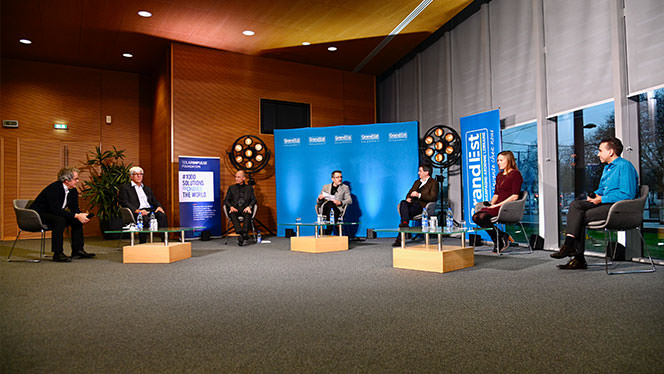
An honest-broker, placed at the center of innovators issues and political will
To respond to this demand emerging from multiple cities, the Foundation brought together an Implementation Task Force that aims to bridge the gap between environmental targets and existing technologies that would help them to reach these targets.
By serving as an honest broker, without financial interest in the success of these solutions, the Task Force acts as an intermediary between the solution providers and public authorities.
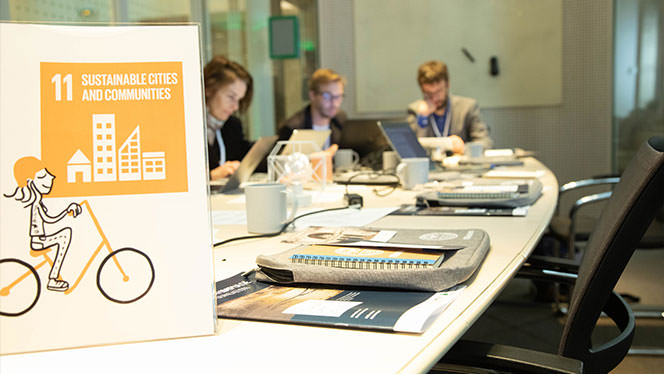
Highlighting solutions for public and private entities
Practically, the Task Force engages with public and private entities so as to understand their needs when it comes to reducing their environmental footprint and identify which solutions can best address the issues raised.
The solutions will respond to major climate challenges such as decarbonizing the construction sector, building sustainable infrastructure, reducing energy consumption, promoting clean transportation, etc.
This audit phase allows us to bring to the attention of public authorities solutions within our portfolio, while also looking for new local technologies and services emerging from these regions; thus highlighting the potential for clean and sustainable development that resides within these innovation and experimentation clusters.
To further help these entities achieve their environmental targets, the Task Force is committed to providing technical and regulatory expertise to the maximum extent possible and to support, monitor and follow-up the development of projects.

Ongoing collaborations
These collaborations offer a real opportunity for the development of a program designed to identify needs, promote solutions and create synergies, all with the purpose of accelerating the transition to a sustainable economy. Here are the ongoing collaborations:
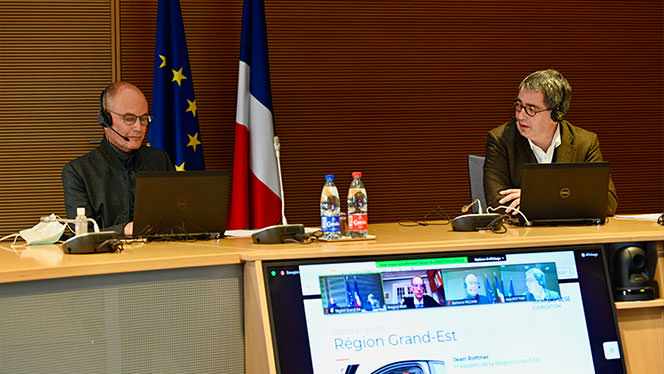
Région Grand Est
With the ambition to become “a positive energy and low-carbon region by 2050”, the Region Grand Est (France) joined forces with the Solar Impulse Foundation in November 2019. Focused on the following key topics: land use planning, environment, economic development and innovation, the Region will collaborate with the Foundation through a partnership that covers several strategic areas and based on common objectives such as:
- • The promotion of labelled solutions to stakeholders in the Region Grand Est.
- • The fostering of a balanced ecological transition by deploying low-carbon footprint solutions in the Region to move towards an efficient, low-material-consuming economy.
- • The support in the accession to new market opportunities for cleantech companies from the Region.
- • The promotion of the Region as a place for ecological experimentation and innovation.
Région Ile de France
In September 2020 the Région Ile de France continued to demonstrate its climate credentials by organizing a “COP Ile de France” - a climate conference that sought to borrow the ambition and expectations from the UNFCCC Conference of the Parties (COP). At this event, the Région and the Solar Impulse Foundation agreed to work together to support companies and government bodies to enable the ecological transition and unlock ever more economic opportunities. This covers several strategic areas, including:
- • The promotion of labelled solutions to stakeholders in the Région Ile de France.
- • Deploying low-carbon solutions to modernizes and increase the efficiency of the economy.
- • Supporting cleantech companies from the territory to access new market opportunities.
- • Showing the region to be a key actor in testing an innovation within the cleantech sector.
Please note that the Solar Impulse Foundation adheres to the Regional Charter of the Values of the French Republic and Secularism.
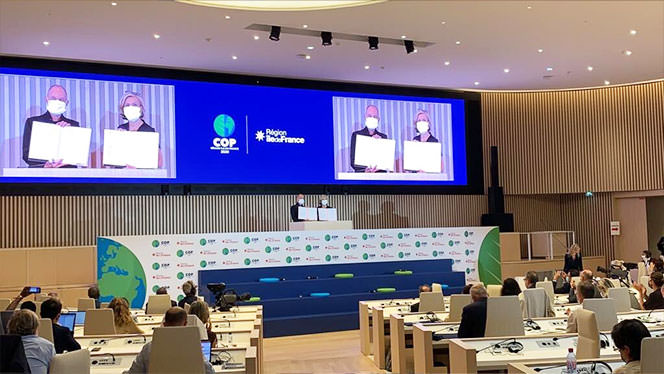
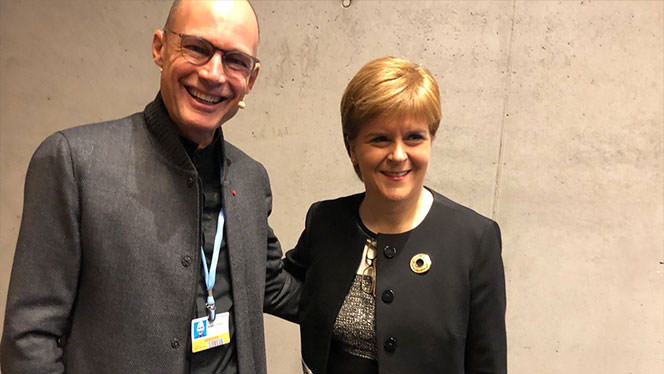
Scotland
Scotland’s partnership with the Solar Impulse Foundation was made official at COP24 in Katowice, Poland (2018). The First Minister of Scotland, Nicola Sturgeon, announced that her government will financially back the Foundation, coupled with an agreement to strengthen cooperation in the identification and promotion of solutions to fight climate change.
It is a moral obligation on all of us – governments, businesses and individuals – to do what we can to reduce and mitigate the effects of climate change. One of the ways we can do that is by identifying different ways of doing things, ways that do not impact negatively on our planet. Scotland has a proud history of innovation and we are well placed to use those skills to uncover alternatives to products and practices that currently harm our environment. As such, I’m very pleased that we are going to be able to work with the Solar Impulse Foundation in their future efforts.
Nicola Sturgeon, Scotland Prime Minister.
Wallonia
Since April 2019, The Belgian region of Wallonia has partnered with the Solar Impulse Foundation to bring expertise to help us move more quickly toward identifying 1,000 solutions that meet with our criteria. This collaboration aims to bring Walloon cleantech solutions to the world as well as helping the region achieve its environmental targets.
The main aspects of this collaboration include:
- • The involvement of experts from the “Walloon Platform for the IPCC” in the evaluation of solutions.
- • The work towards an equivalence system between the assessment made by the Solar Impulse Foundation and the analysis done by the “Walloon Administration of Research for funding projects” in order to facilitate the labellisation of projects from the latest.
- • The identification and labellisation of several solutions from the region. Full list available here.
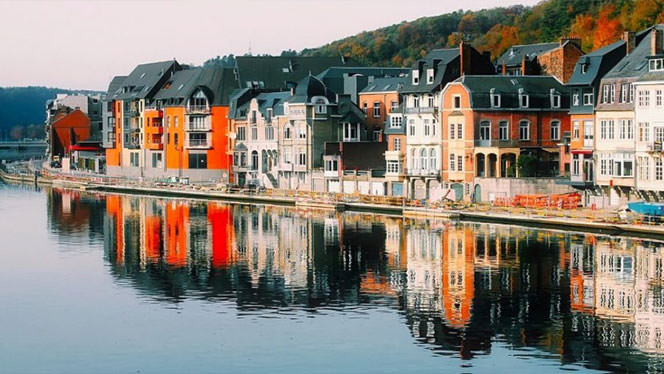
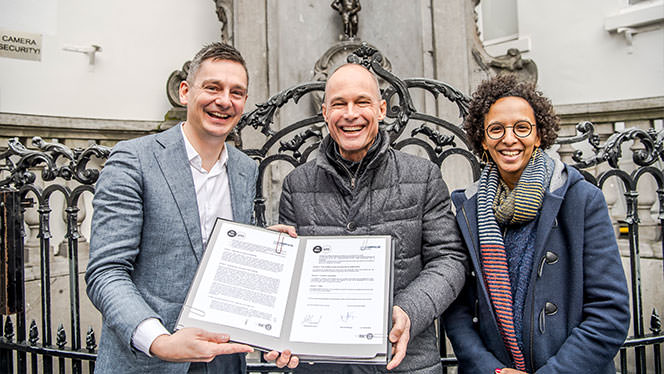
City of Brussels
It is only by uniting our ideas and technologies that we will have an effective impact on the vital climate issue. In the City of Brussels and in the Brussels-Capital Region, there are a range of companies actively taking part in the fight against climatic imbalance, and these companies can share their knowledge with Solar Impulse and in return benefit from the Foundation’s solutions and network.
Barbara Trachte, Secretary of State for Economic Transition and Scientific Research for the Brussels Region.
City of Brussels
The City of Brussels and the Solar Impulse Foundation have joined forces in February 2020 in order to accelerate the ecological transition. The Foundation’s main goal will be to support the City in the identification of innovative solutions to achieve its environmental targets. These solutions will respond to major climate challenges such as decarbonizing the construction sector, building sustainable infrastructure, reducing energy consumption, promoting clean transportation, etc.
This collaboration also includes:
- • The support of the Foundation concerning the replacement of trucks of the Brussels Kitchens which deliver between 12,000 and 15,000 meals daily.
- • The integration of more solutions from Brussels in the #1000solutions portfolio.
- • The promotion of Brussels companies and start-ups awarded with the Label for more visibility and business opportunity around the world. Full list of already labelled Brussels solutions available here.
Occitanie
To become the first Positive Energy Region in Europe, Occitanie has committed to dividing by two its energy consumption per capita and to multiplying by three its renewable energy production, both by 2050. These ambitious goals have raised, in the process, many challenges such as upgrading the energy efficiency of buildings, better structuring and optimising the production and distribution of renewable energy, and leveraging innovation. In order to help achieve these objectives, the Region signed an MoU with the Solar Impulse Foundation in 2017, with a focus on the following aspects:
- • The support of the Region to find potential experts in the domains of renewable energy, mobility and sustainable buildings.
- • The facilitation of regional initiatives and projects that aim at promoting the use of clean technologies and efficient solutions.
- • The support of the Foundation to innovators that participate in the Region’s projects.
- • The support of the Region in the identification of companies that might join the Foundation’s challenge and eventually apply for the label.
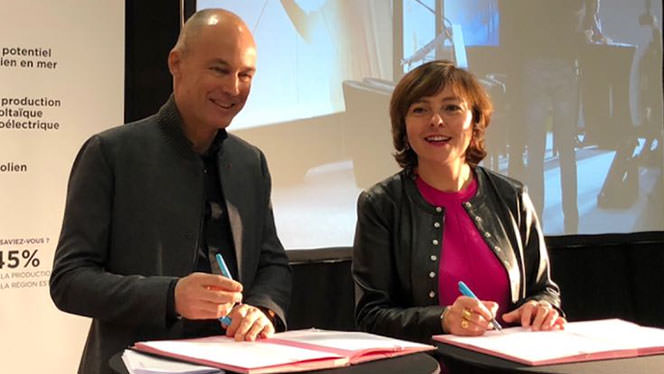
Occitanie
Becoming the first Positive Energy Region in Europe should be more than just a slogan. It needs to become a reality in our daily lives, and it needs to be enriched by multiple and diverse initiatives. This ambition is driven by our responsibility to take concrete action to tackle climate change.
Carole Delga, President of the Occitanie Region.
More about our advocacy work

Contact us at:
